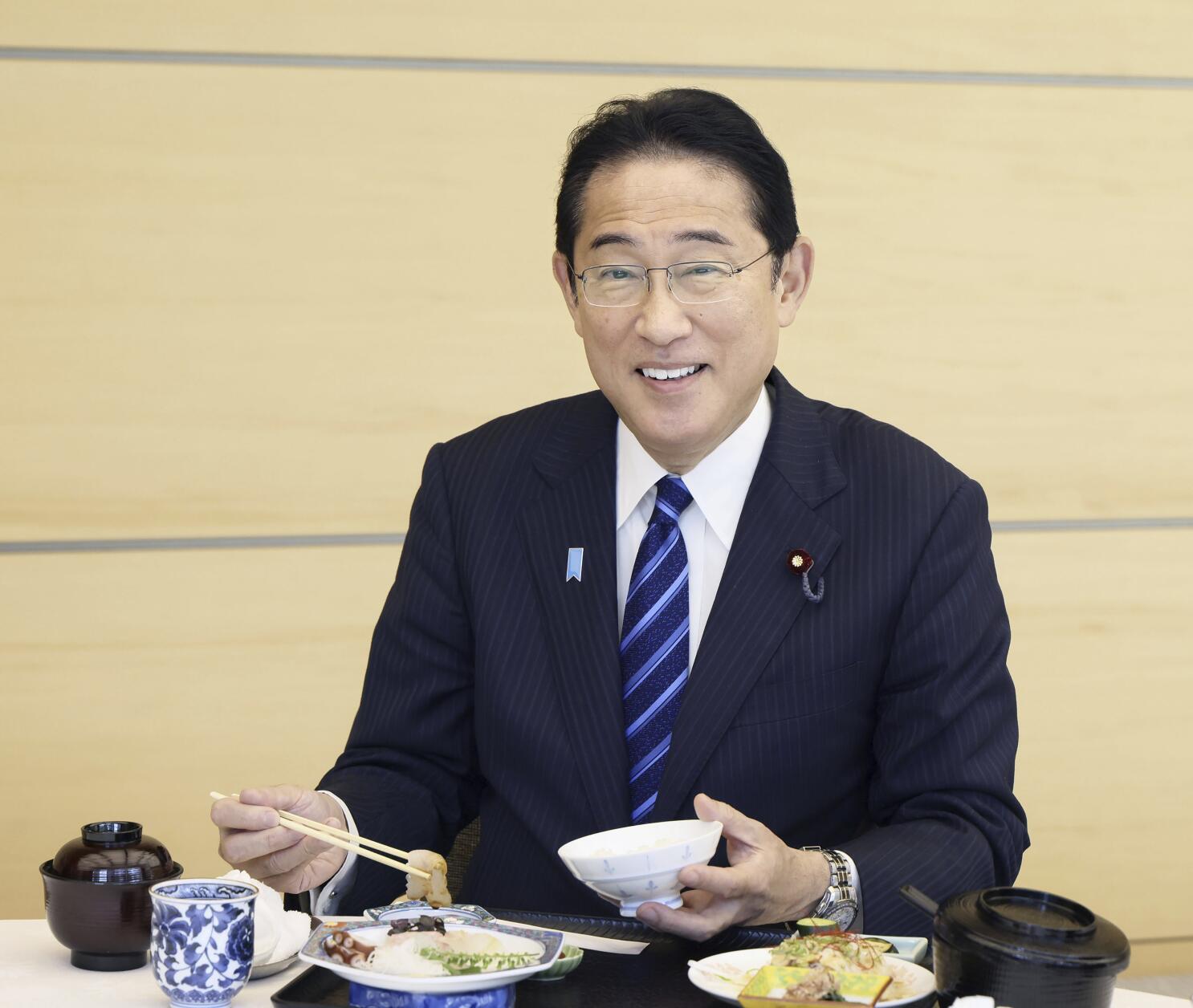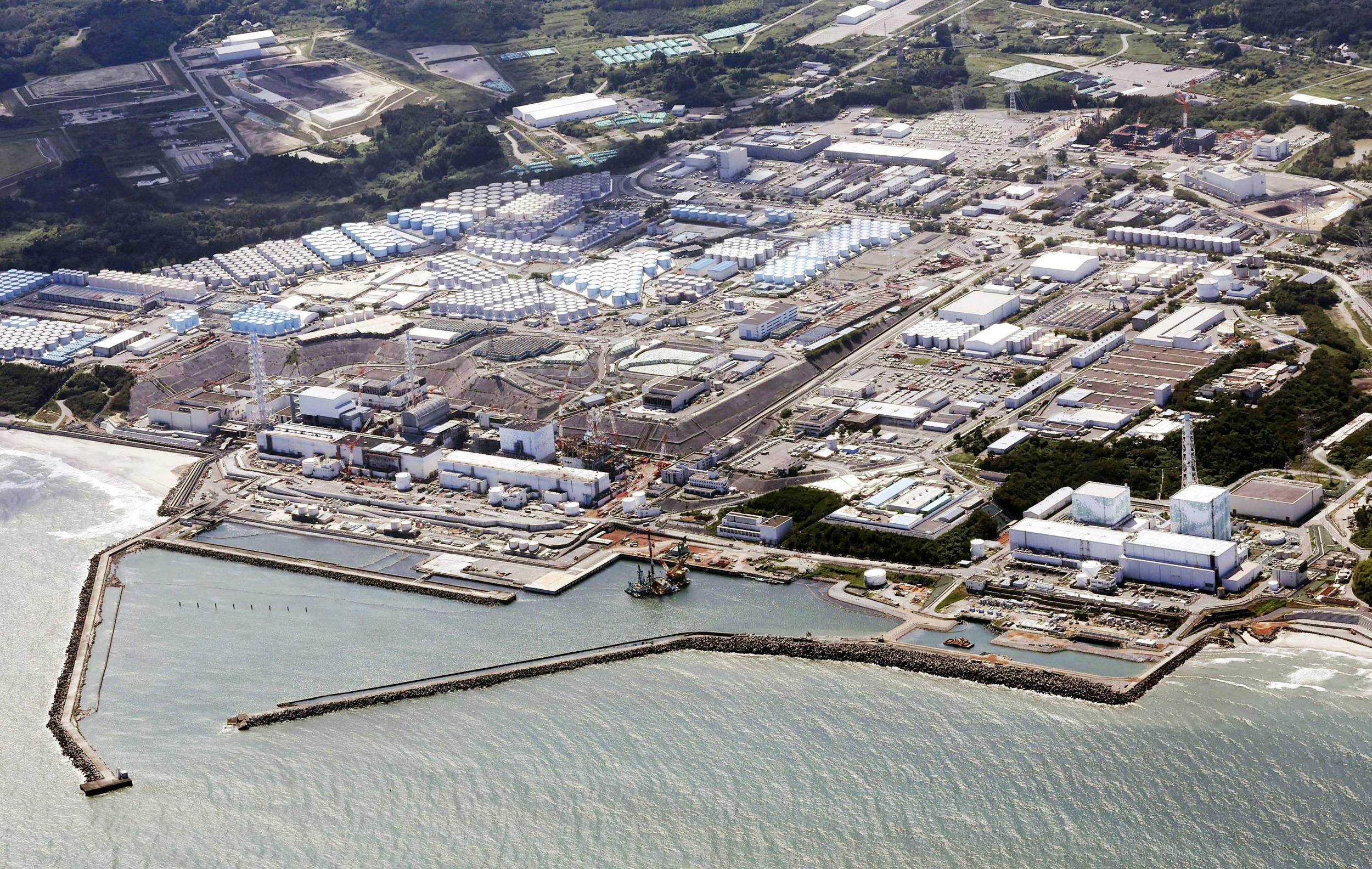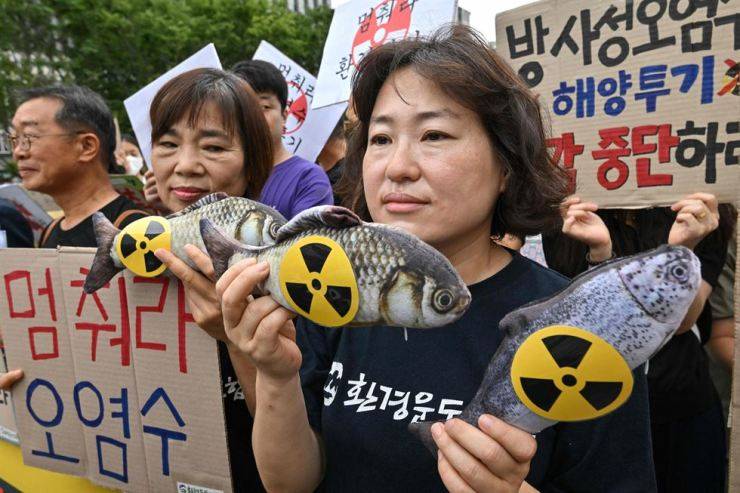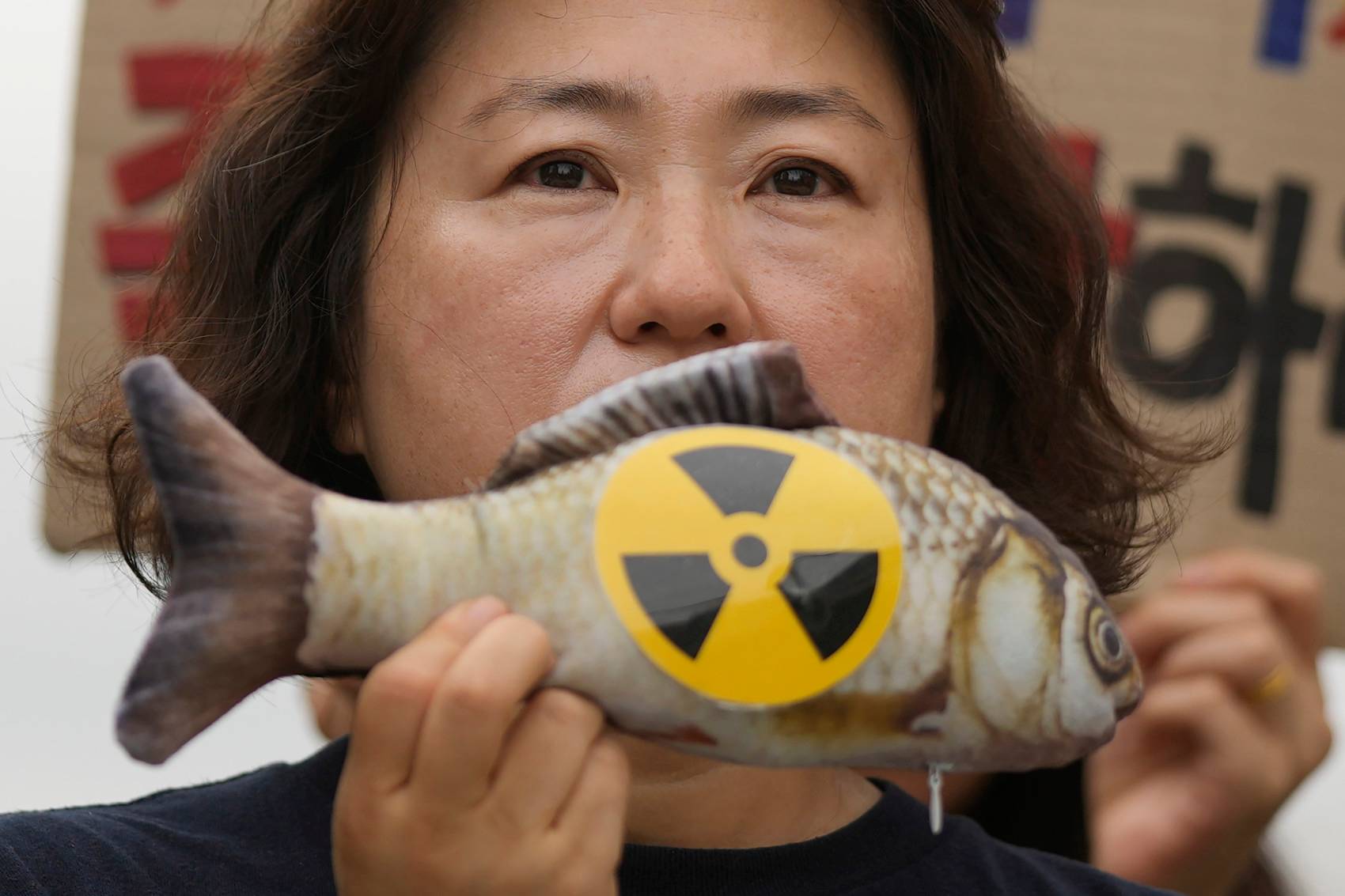

Japanese Leaders Eat Fukushima Fish to Showcase Safety Amidst Nuclear Plant Wastewater Release
Japan's Prime Minister, Fumio Kishida, and a trio of Cabinet ministers displayed a significant gesture on Wednesday as they consumed Fukushima fish sashimi during a luncheon meeting. This act was seemingly aimed at reassuring the public about the safety of fish following the recent discharge of treated radioactive wastewater from the Fukushima Daiichi nuclear power plant.

At the luncheon, Kishida and the ministers savored flounder, octopus, and sea bass sashimi, all sourced from the waters off Fukushima's coast post the wastewater release. Alongside the seafood, they enjoyed vegetables, fruits, and rice cultivated in the prefecture. Economy and Industry Minister Yasutoshi Nishimura, who was present at the event, informed reporters about the gathering.
Despite the treated wastewater's commencement into the ocean, which began last week and is projected to persist for years, fishing organizations and neighboring countries have strongly objected to the move. China reacted promptly by imposing a ban on all imports of Japanese seafood. In South Korea, thousands participated in rallies to condemn the wastewater discharge.
Data from seawater and fish sampling post-release have consistently remained well below the established safety thresholds.

Nishimura underlined that the luncheon depicted Kishida's unwavering commitment to leading the efforts to counter reputational damage while upholding Fukushima's fishing community sentiments. Nishimura emphasized the importance of demonstrating safety through scientific evidence and effectively communicating this information both within Japan and abroad.
Furthermore, Kishida is set to visit Tokyo's Toyosu fish market on Thursday to further promote Fukushima fish, and Nishimura previously visited a Fukushima supermarket chain to sample fish.
In South Korea, President Yoon Suk Yeol also participated in a similar gesture by consuming fish for lunch. The Presidential Office cafeteria served Korean fish this week to address declining demand due to concerns about the Fukushima plant's wastewater release impact.

Japan's Foreign Ministry issued a travel advisory urging Japanese citizens to exercise caution in China due to escalating harassments and violent protests concerning the wastewater discharge. Chief Cabinet Secretary Hirokazu Matsuno mentioned the possibility of escalating the matter to the World Trade Organization (WTO), indicating that Japan might explore various options within the WTO framework.
Amidst the tensions, thousands of crank calls reportedly targeted Fukushima government offices and the nuclear plant's operator from China. Some calls contained derogatory language. In Tokyo, a Japanese-style bar posted a sign singling out "the Chinese," leading to a complaint by a Chinese V-tuber about perceived discrimination. The bar owner altered the sign but refrained from further discussion.
The treated radioactive wastewater is a consequence of the nuclear plant's meltdown in March 2011 due to a massive earthquake and tsunami. Accumulating to 1.34 million tons, it's stored in around 1,000 tanks. The Japanese government and Tokyo Electric Power Company Holdings assert that freeing up space for plant cleanup and decommissioning necessitates the removal of the stored water, which currently occupies much of the plant area.
In Japan, opposition from fishing groups remains robust, driven by concerns of further harming Fukushima's seafood reputation. These groups continue their efforts to rebuild businesses affected by the fallout from the reactor meltdowns.
Related Posts
© 2025 Invastor. All Rights Reserved

User Comments